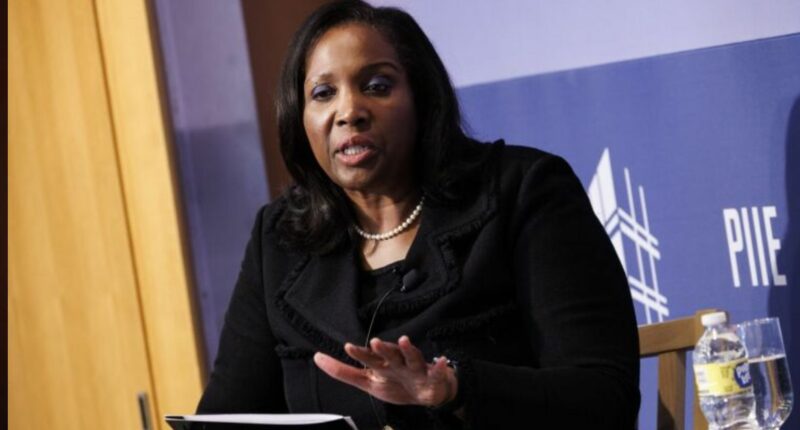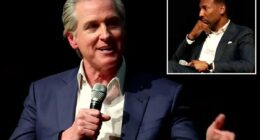Share this @internewscast.com
Lisa D. Cook is a towering presence in the fields of economics and public policy. Her groundbreaking appointment to the Federal Reserve Board of Governors signifies a noteworthy achievement.
Although her net worth isn’t publicly available, her stellar career highlights numerous achievements. Her ascent from academia to a top position in U.S. economic policymaking narrates a story of exceptional talent and determination.

Lisa D. Cook’s Historic Federal Reserve Appointment and Net Worth
In May 2022, Lisa D. Cook made history by becoming the first African American woman to join the Federal Reserve Board of Governors. Her appointment was confirmed by a slim Senate vote of 51-50, with Vice President Kamala Harris casting the deciding vote, marking a significant moment. Financial disclosures linked to this role show that she holds mortgages on properties in Michigan and Georgia.
These disclosures include a 30-year mortgage at 3.25% and a 15-year mortgage at 2.875%, both taken out in 2021. These rates align with the average market rates at that time. While these disclosures provide partial insight into her finances, they don’t specify an exact net worth. Her true contribution lies in her significant influence on economic policy.
“Cook must resign, now!!!” – Former President Donald Trump emphasized in his social media post in August 2025, echoing concerns about her mortgages
Trump demands resignation of biden-appointed fed governor Lisa Cook after mortgage fraud referral to DOJ pic.twitter.com/0AB8HAuidv
— We The Media (@WeTheMedia17) August 20, 2025
Academic Foundations and Distinguished Economics Career
Dr. Cook’s academic path is both distinctive and admirable. She earned a BA in Physics and Philosophy from Spelman College, and another BA in Philosophy, Politics, and Economics from the University of Oxford as a Marshall Scholar. Her interest in economics was famously sparked during a climb up Mount Kilimanjaro.
She later earned a Ph.D. in Economics from UC Berkeley, focusing on the Russian banking system. She became a professor at Michigan State University, teaching economics and international relations. Her research is pioneering, exploring the links between violence during the Jim Crow era and suppressed innovation among African Americans.
“It was atop Mount Kilimanjaro that it dawned on Lisa D. Cook that she should go into economics.” – AEA CSMGEP Profile.
Policy Influence and Government Service Roles
Dr. Cook’s expertise has been sought by governments worldwide. She has advised Rwanda and Nigeria on critical economic development and banking reforms. In the U.S., she served as a Senior Economist on the White House Council of Economic Advisers under President Obama from 2011 to 2012.
She was also a senior adviser at the U.S. Treasury Department. Her work often sits at the intersection of economic history and macroeconomics, aiming to create more inclusive growth. She has been a powerful advocate for increasing diversity within the field of economics itself.
“Rwanda had one of the highest population growth rates in the world, and their idea was that the economic pie was fixed… If there’d been more thought about how the country should develop, things might have turned out differently.” – Dr. Cook reflecting on her advisory work.
Recent Controversies and Political Challenges
Recently, Dr. Cook has faced political scrutiny. In August 2025, FHFA Director Bill Pulte alleged she may have received favorable mortgage terms by incorrectly designating primary residences. These allegations, relating to loans from 2021, were quickly amplified by former President Trump, who called for her resignation.
Democrats on the House Financial Services Committee defended her, calling the attacks “blatant lies” and an assault on the Fed’s independence. This event highlights the political pressures that can accompany high-profile roles in economic governance.
“Donald Trump is making up blatant lies in an effort to oust the first Black woman to serve on the Federal Reserve Board… This is another attack on the Fed’s independence. We can’t let this happen.” – Democrats on the U.S. House Committee on Financial Services





